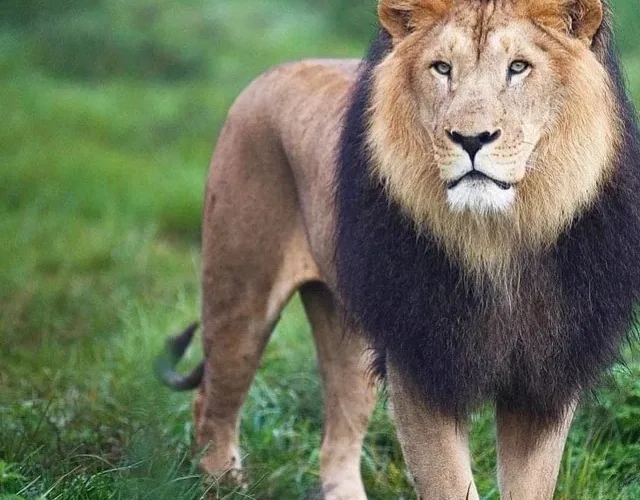The Ethiopian Wildlife Conservation Authority has sounded the alarm on the endangered status of the Ethiopian black gopher lion, attributing its decline to various factors.
According to Daniel Paulus, a senior expert in the authority’s wildlife trafficking control, illegal settlements, deforestation, farming, and grazing are chief among the reasons contributing to the destruction of the lions’ natural habitat.
Consequently, the disruption in the food chain poses a significant threat to these majestic animals, leaving them vulnerable to illegal hunting.
Notably, the black gopher lion, a distinct species found in the Horn of Africa, faces heightened risk due to smuggling routes passing through Kenya, Sudan, and South Sudan.
Daniel Paulus further emphasizes that recent demand for lion bones, particularly in traditional medicine practices in Asia, has intensified the threat of illegal hunting, exacerbating the decline in lion populations across Ethiopia.
While efforts to rehabilitate captured lions have been undertaken, accurate assessments of the remaining lion population remain elusive due to insufficient research.
However, experts warn that without proper protection measures, Ethiopia’s unique lion species could face imminent extinction.
In response, the Ethiopian Wildlife Conservation Authority plans to bolster enforcement operations in areas with rampant illegal trafficking to safeguard the survival of these animals.
Collaboration through initiatives such as the Wildlife Law Enforcement Initiative, aimed at enhancing cooperation with neighboring countries, is deemed crucial in addressing the crisis.
In a related concern, reports indicate extensive deforestation in Babile Park, a vital sanctuary for elephants, where over 200 hectares of forest have been cleared for agricultural ventures.
Adane Tsagaye, CEO of the National Parks Administration, underscores the peril faced by elephants due to the encroachment of agricultural activities into their habitat.
The Babile Elephant Sanctuary, situated on the border of Somali and Oromia regions, is witnessing its Oromia region side succumb to agricultural investments, posing a grave threat to the resident elephant population.
The allocation of parkland for investment without the knowledge or oversight of the Ethiopian Wildlife Protection Authority underscores the urgent need for stronger conservation efforts and stricter regulation to protect Ethiopia’s diverse wildlife heritage.
